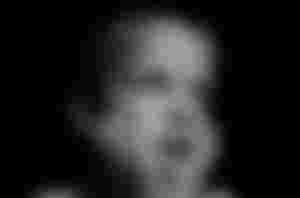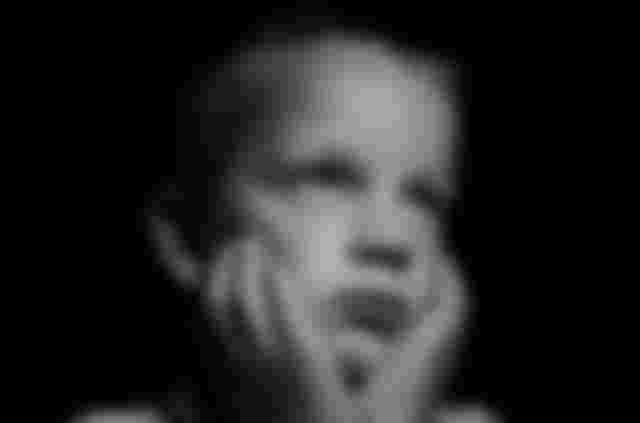Excessive Anxiety, Recognize Symptoms and Effective Ways to Overcome It.
It's normal to feel anxious when you're in a stressful situation. However, if you feel excessive anxiety for no apparent reason, you may have an anxiety disorder. Know what the symptoms are, so they can be treated immediately. Normal anxiety will usually subside on its own when the anxiety triggering factor disappears. For example, someone who feels anxious when facing an exam will feel calm again after the exam is over.
However, unlike normal anxiety, people who experience excessive anxiety will usually continue to feel anxious for no apparent reason. The emergence of excessive anxiety is often caused by anxiety disorders. People who experience excessive anxiety often feel excessive worry and fear continuously. Over time, this anxiety disorder can get worse and interfere with the sufferer's quality of life.
If they don't get treatment, people with anxiety disorders who feel excessive anxiety can have difficulty in carrying out daily activities, decrease work performance or learning achievement at school, and also have difficulty undergoing social interactions with other people.

Types of Anxiety Disorders and Symptoms Excessive anxiety that arises due to anxiety disorders can be caused by several types of anxiety disorders, namely:
-General anxiety disorder
Generalized anxiety disorder is characterized by excessive feelings of anxiety, worry, or fear that lasts for at least 6 months. People with generalized anxiety disorder can feel anxious at any time, even without any obvious stressors. In addition to excessive anxiety, people with generalized anxiety disorder may experience other symptoms, such as:
*Insomnia
*Difficulty concentrating
* Worrying too much about small things
*chest pounding
*A cold sweat
*Easy to get tired
* Muscles feel stiff and tense
-Panic disorder
Panic disorder or panic attack is an anxiety disorder characterized by sudden onset of excessive anxiety or intense fear. When a panic attack occurs, the person suffering from excessive anxiety will feel helpless, unable to think calmly, and may also experience certain physical symptoms, such as chest pain, palpitations, shortness of breath, dizziness, or stomach pain, or feel like going to bed. faint.
-Phobia
A phobia is an excessive fear of certain objects or situations, such as blood, spiders, heights, or tight spaces. The fear experienced can even make the sufferer avoid the object or situation. People who suffer from phobias will feel very scared or panicked when faced with the thing that causes the phobia or even just thinking about it.
-Social anxiety disorder
This disorder, also known as social phobia, is characterized by excessive anxiety about everyday social situations, such as speaking in front of crowds or greeting other people. People with social anxiety disorder or social anxiety disorder often avoid social interactions because they are afraid of being humiliated or judged by others.
-Post-traumatic stress disorder
Post-traumatic stress disorder (PTSD) can occur when a person experiences an event or events that cause severe psychological trauma, such as an accident, sexual assault, or a natural disaster. People with PTSD will usually experience excessive anxiety and often remember the events they experienced, nightmares, and fears that appear constantly.
-Obsessive compulsive disorder
Anxiety disorder which is also called obsessive-compulsive disorder (OCD) makes sufferers have to do an action repeatedly. For example, people with OCD must wash their hands 3 times, because otherwise they will feel that their hands are still dirty and can be dangerous.

Causes of Excessive Anxiety and How to Overcome It The cause of the emergence of excessive anxiety due to anxiety disorders is not yet known with certainty. However, there are several factors that can make a person more at risk of developing an anxiety disorder, namely:
*Genetic factors
Prolonged severe stress, for example due to mental pressure, family problems, or difficulty meeting economic needs History of psychological trauma in childhood In contrast to normal anxiety and can subside on its own, excessive anxiety due to anxiety disorders will not disappear without treatment from a psychologist or psychiatrist. Therefore, if you feel excessive anxiety that does not go away, you should consult a psychologist or psychiatrist. To help calm your feelings and relieve the excessive anxiety you feel, a psychologist or psychiatrist will provide treatment in the form of:
*Psychotherapy
While undergoing psychotherapy, you can talk and share how you feel. In addition, a psychologist or psychiatrist will provide advice on how to understand and deal with the excessive anxiety you are experiencing. In psychotherapy sessions, you will also be guided to reduce stress, for example by doing relaxation or meditation. There are various psychotherapy techniques that are used, depending on what causes the excessive anxiety you feel. However, some of the commonly used psychotherapy techniques are cognitive behavioral therapy
*Medication administration
Giving drugs to relieve anxiety can only be done by a psychiatrist. To relieve your anxiety, your psychiatrist can prescribe sedatives and antidepressants.
Healthy Ways to Control Excessive Anxiety
In addition to medical treatment by a psychologist or psychiatrist, you can also take the following steps to control or deal with excessive anxiety:
Avoid consuming drinks that contain caffeine such as coffee, tea, or energy drinks, because they can worsen symptoms of anxiety disorders.
#Do regular exercise, such as jogging, aerobics, and cycling, to help reduce stress and improve mood.
#Enough rest time for 7-9 hours every night.
#Try to vent or tell people closest to you about your feelings and the problems you are facing.
#Avoid the consumption of alcoholic beverages, illegal drugs, and smoking because they can aggravate anxiety disorders experienced.
Excessive anxiety cannot just go away without medical treatment. Therefore, you need to consult a psychologist or psychiatrist, if you feel excessive anxiety that has interfered with your daily activities or social life, especially if these feelings occur along with thoughts of suicide or self-harm. Thanks for reading and hopefully useful.

